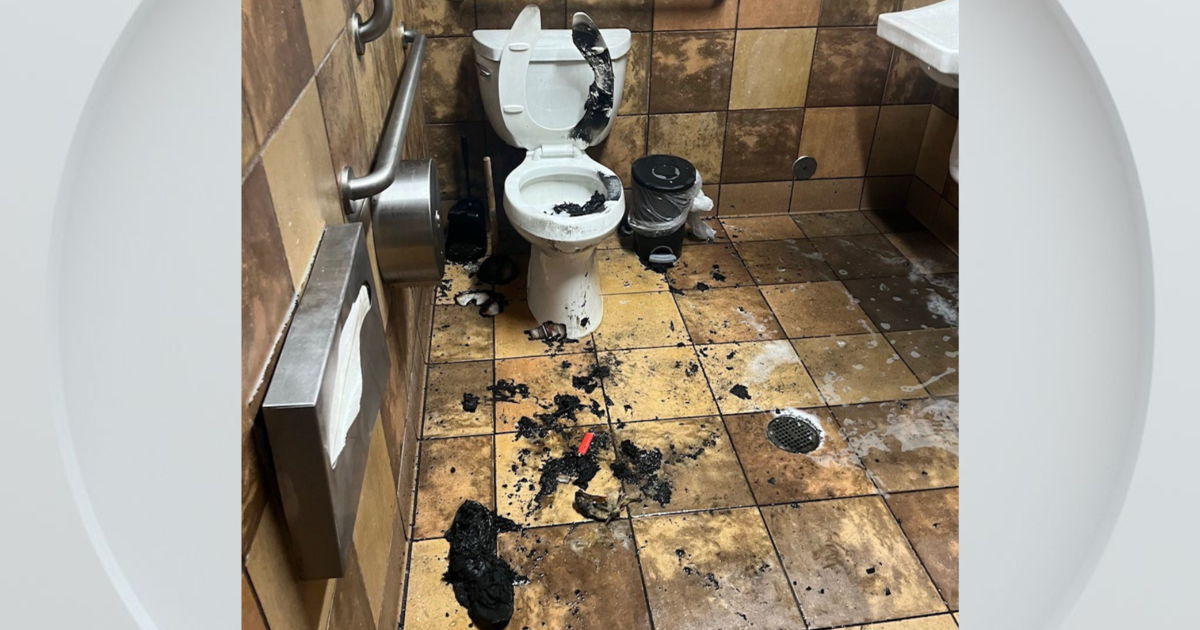Weed Killer Found In Kids At Higher Levels Than Parents
SACRAMENTO (CBS13) — As the EPA decides whether to re-approve the weed-killing ingredient in Roundup for another 15 years, a new report finds 90% of the families tested have that chemical in their bodies, and most kids had much more than their parents.
The Center for Environmental Health (CEH), a non-profit that is focused on protecting people from toxins, reached out to parents who have researched or reported on chemicals in kids in the past to ask if they wanted to participate in the bio-monitoring study.
CBS13 investigator Julie Watts and her daughter were among the volunteers who submitted samples for testing.
CEH used an independent lab to test a dozen parent-child pairs who all reported consciously trying to avoid pesticide exposure.
The lab found nine of the children had higher concentrations of the weed killer in their body than their parents. Half of the children had twice the amount of glyphosate in their body as their parents, and one had nearly 100 times more weed killer in their body.
It was not the first bio-monitoring study to find the weed killer in people's bodies, but it was the first to compare the amount in kids to their parents.
Sue Chaing, the Pollution Prevention Director at the CEH, also participated in the study. She recently worked on a different CEH report that found the Roundup chemical glyphosate in nearly 70% of oat-based food items on school menus.
"Because I work on this issue, I was not necessarily surprised (by the bio-monitoring results), but I'm definitely concerned and disturbed," Chaing said.
Chaing says she is careful about the food her son Gabe eats and chooses organic food and cereal whenever they can. However, despite her best efforts, the lab found the weed-killing chemical used in Monsanto's Roundup in Gabe's body at much higher levels than his mom.
READ: Water Board To Test Soil In Ripon For Potentially Hazardous Chemical Vapor
"That doesn't surprise me and that's true actually for a lot of environmental contaminants." said Environmental Health Scientist Asa Bradman, Associate Director of the Center for Environmental Research and Children's Health at UC Berkeley.
Bradman has studied pesticide exposures for decades. "Kids often have higher levels," Bradman said, "simply because they eat more, they drink more, and they breathe more per unit of body weight than adults."
Bradman was not associated with the study but explained, while glyphosate residue in food is likely the primary source of exposure, kids are also more likely to come in contact with the chemicals at schools or parks.
"It's important for us to understand exposures and measure them and be aware of them and then to follow up from there on ways to reduce exposures where we can," Bradman said.
ALSO: Groundskeeper Accepts $78 Million Verdict Against Monsanto Over Roundup
He noted that Roundup is one of the most widely-used pesticides due in part to Monsanto's Roundup-ready crops that are genetically modified to survive the chemical that kills plants and weeds around it.
The active ingredient, glyphosate, is increasingly controversial after a jury found Roundup caused cancer in a local school groundskeeper. Monsanto denies the weed killer is harmful and points to the EPA which says, based on studies it reviewed, "there are no risks to children or adults from currently registered uses [of glyphosate.] No risks of concern from ingesting food with glyphosate residues."
Though CEH argues the EPA primarily looks at studies funded by Monsanto.
"They should be looking at more independent studies that are showing that it's cancer-causing. There's hormone-disrupting effects, it causes damage to our human cells and genes and causes birth defects," the CEH said.
Still, official positions differ. The World Health Organization's International Agency for Research on Cancer (IARC) classified glyphosate as "probably carcinogenic in humans." In contrast, the European Food Safety Authority said "it's unlikely to pose a carcinogenic threat."
While the California EPA lists glyphosate as "known to cause cancer," primarily based on animal studies and findings by the World Health Organization.
Chaing said more studies need to be done, but the studies that have been done are showing serious health concerns.
READ: Could A New Cell Tower Hurt You Financially? CBS13 Investigates
Monsanto questioned the small sample size of volunteers tested by CEH and said in a statement that reported results are "are thousands of times below strict exposure limits set by safety authorities" for adults.
While there are established occupational exposure limits for adults, there is no established safe level in kids for exposure or the amount of the chemical inside their body.
"Because it's a hormone disruptor. It can affect our body at extremely low levels," Chaing said.
Bradman said parents shouldn't be frighted by the CEH findings, but noted that knowledge is power. He said parents with concerns can try to limit exposure, and the CEH believes that begins with buying organic.
"Buy organic food whenever possible," Chaing said. "It is expensive, (but parents can) try to just make good choices when (they) can."
CEH also encourage parents to talk to their schools about buying organic food and avoiding chemical weed killers on campus.
"The good news is schools are starting to pass policies to phase out the use of glyphosate on school grounds," Chaing said.
A growing number of public agencies are phasing out glyphosate and the state has discouraged the chemical use at schools. But, CBS13 recently requested pesticide records from more than 1,000 California school districts and found while many have stopped used glyphosate, the majority are still spraying school grounds.
As for CBS13 investigator Julie Watts and her daughter's test results, Julie had the lowest glyphosate levels of any parent in the study, and her daughter had the fourth-lowest levels of any child.
Like most of the families however, her daughter had much higher levels than Julie.
Monsanto's full statement:
"Glyphosate is among the most extensively tested pesticides on the market. As part of its most recent human health risk assessment, the U.S. EPA concluded that "there are no risks to children or adults from currently registered uses" of glyphosate. Additionally, U.S. EPA evaluated all populations, including infants, children and women of child-bearing age, and "found no risks of concern from ingesting food with glyphosate residues."
Glyphosate has been repeatedly reviewed by scientists at the U.S. EPA working under multiple administrations of differing parties, and the agency continues to find that glyphosate poses no risks to public health. CEH provides results from a small group of volunteers with no information to determine whether the results are reliable. Assuming that these results are accurate, the reported values do not raise any human health concerns and are thousands of times below strict exposure limits set by safety authorities. The fact is there are hundreds of studies conducted according to internationally accepted methods under stringent quality requirements that demonstrate the premises underlying CEH's health claims are neither accurate nor reliable."



